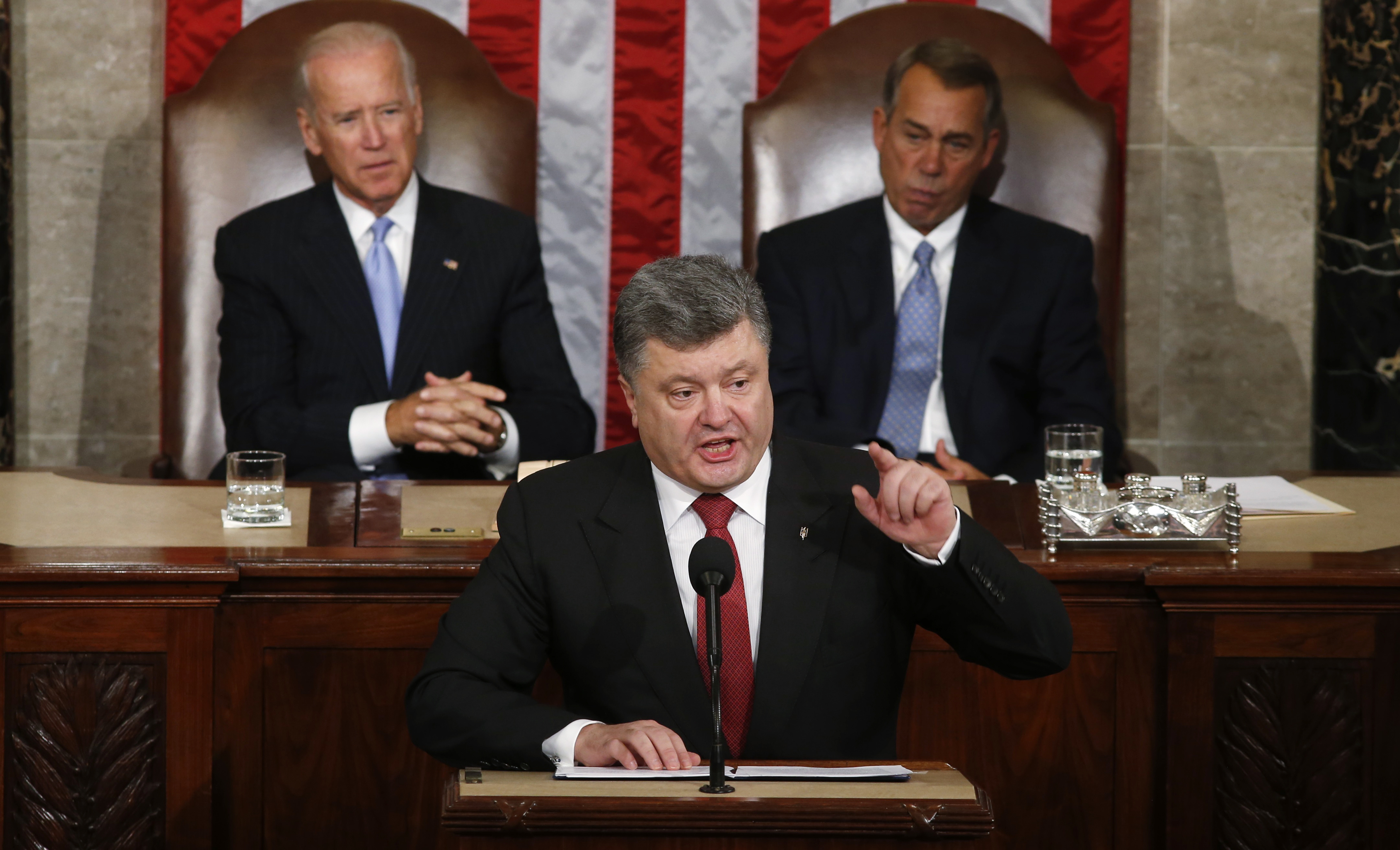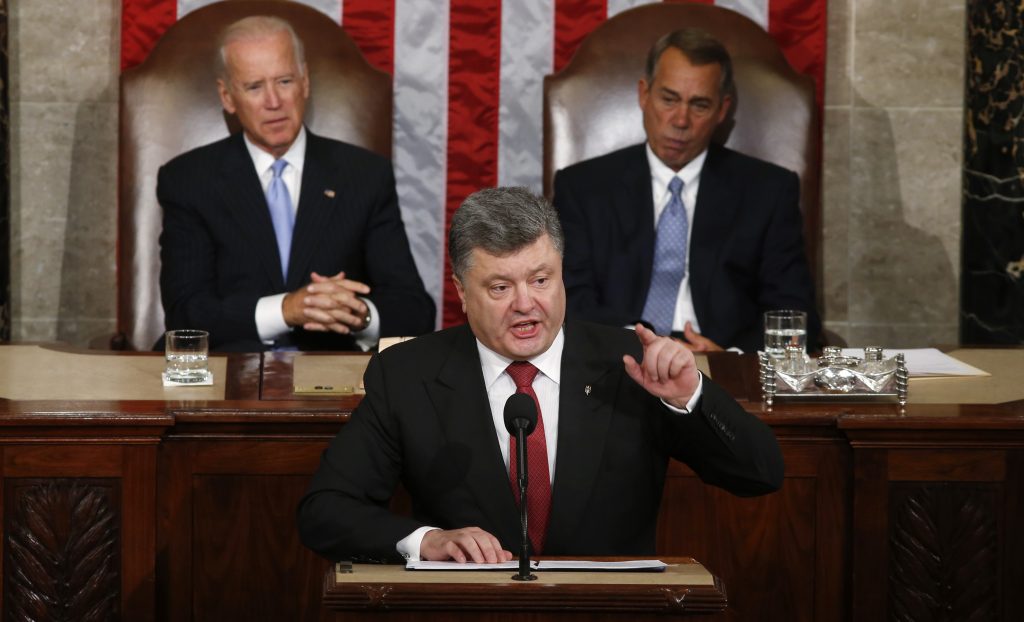
Russia’s Assault Threatens Not Just Ukraine, but Europe and Eurasia
Ukrainian President Petro Poroshenko delivered a stark but necessary message in Washington September 18. Addressing a Joint Session of Congress, he noted that:
- Russia’s seizure of Crimea and parts of Ukraine’s Donbas region is a danger not only to Ukraine, but to Europe and greater Eurasia;
- if the Kremlin succeeds in Ukraine, it will threaten other neighbors with Russian-speaking citizens, including NATO members;
- to protect his country from further Russian aggression he needs “lethal military equipment”—that is, weapons—from the United States and its allies;
- while he accepts the current cease-fire with the Kremlin, and is willing to discuss most subjects to ensure peace, he will not surrender his country’s territorial integrity, sovereignty or ability to choose its own national security policy.
Sanctions Are Not Enough
This message, on which President Poroshenko amplified in a public forum at the Atlantic Council, was necessary because the dangers of President Vladimir Putin’s aggression are not sufficiently understood in the West, including in Washington. The Obama administration has pursued a solid policy of imposing, in coordination with Europe, sanctions on Moscow for its aggression in Ukraine. But sanctions are not sufficient to deter further Russian aggression. To raise the cost to Putin, the West’s response to Kremlin aggression must include the provision of weapons, military aid, and the adoption of stronger measures in NATO to protect its eastern members. The White House has been unwilling to take these steps, in part hiding behind the reluctance of its European allies. In hesitating this way, the administration forgets that every step to enhance European security during the Cold War required American leadership.
The Poroshenko message may help move American policy because, if President Barack Obama does not understand the stakes in Ukraine and the necessity for American leadership, Congress does. Both Democrats and Republicans are frustrated with the administration’s unwillingness to provide Ukraine the means to defend itself and to discourage the Kremlin from pursuing aggression elsewhere. Legislation has been introduced in both the House and the Senate that could move the administration to provide Kyiv the weapons that should have been provided months ago. The Ukrainian president’s strong performance in Washington is adding momentum to this legislation.
Congress goes into recess this weekend and will not come back until after the elections. That puts off any passage of this legislation until November. But even with a delay, this will be a strong step toward helping Ukraine. And steps toward passage of the legislation may encourage other NATO governments to provide arms in the interim.
Kremlin Signals It Targets Baltics
This support can come none too soon. The Kremlin provides weekly reminders that its ambition goes well beyond Donbas and Ukraine. Russian forces abducted a counter-intelligence officer from Estonia on September 5. Ambassador Konstantin Dolgov, the Russian Foreign Ministry’s envoy for human rights, issued a warning September 13 in the Latvian capital against what he said was a “creeping offensive” against the rights of ethnic Russians in the three Baltic states. This supposed oppression, he said, is driven largely by “the unrelenting rise of xenophobic and neo-Nazi sentiment in the world” directed increasingly at Russia.
Even though Dolgov’s account of the Baltics is an utterly false narrative, we must take it seriously, for it is the same snake oil that Putin sold to his own people and the world to prepare his invasions of Crimea and Donbas.
John E. Herbst is director of the Dinu Patriciu Eurasia Center at the Atlantic Council. From 2002 to 2006 he served as U.S. ambassador to Ukraine.
Image: President Petro Poroshenko addresses a Joint Session of Congress September 18 as Vice President Joe Biden and House Speaker John Boehner (R-OH) listen. (REUTERS/Kevin Lamarque)
